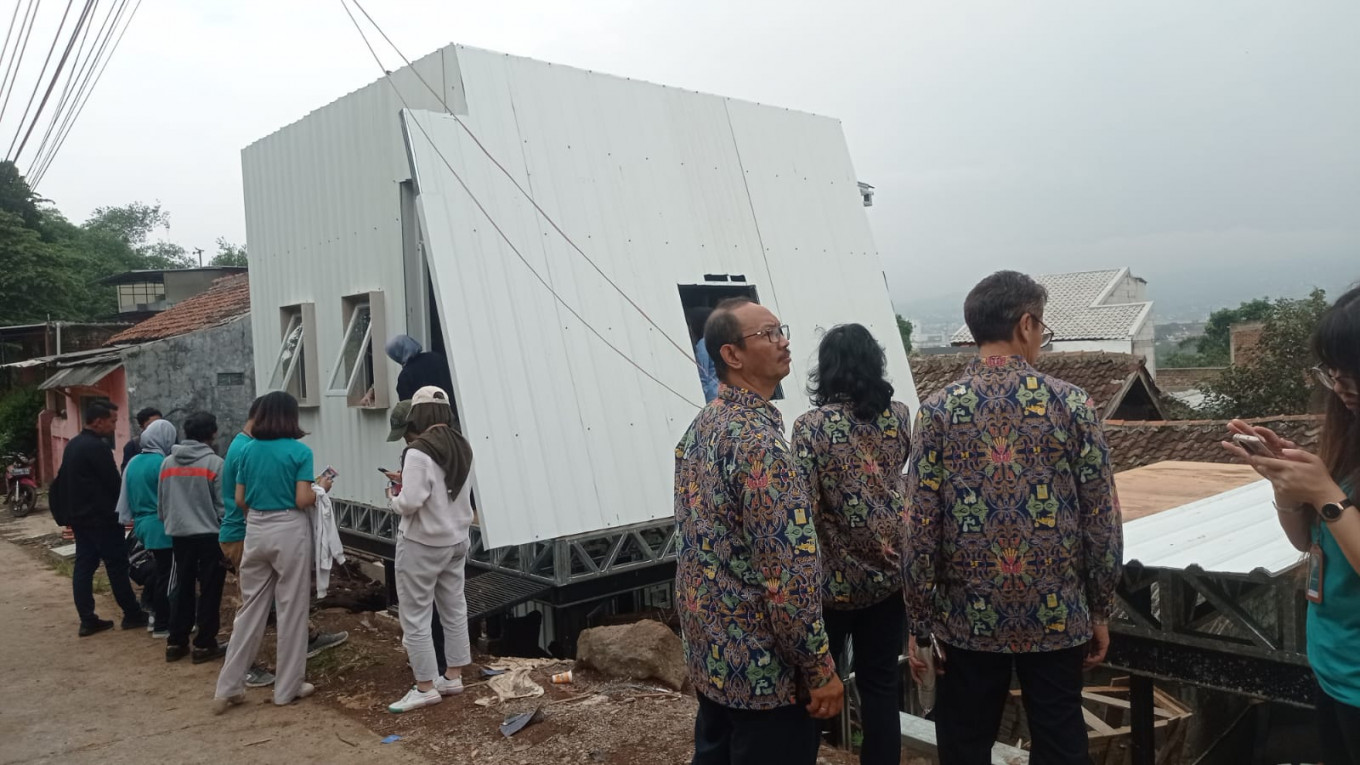Popular Reads
Top Results
Can't find what you're looking for?
View all search resultsPopular Reads
Top Results
Can't find what you're looking for?
View all search resultsGlobal experts convene for sustainable building solutions at SBCC 2024
Change text size
Gift Premium Articles
to Anyone
T
he impact of man-made structures on the environment has never been more apparent. As urban landscapes continue to expand, so does their environmental footprint. The United Nations Environment Program (UNEP) highlights that the built environment is a major contributor to energy consumption, greenhouse gas emissions and waste production, with estimates suggesting that 40 percent of global energy consumption and 30 percent of greenhouse gas emissions stem from this sector alone.
Responding to these pressing challenges, the Indonesian Education University (UPI) Architecture Study Program, in collaboration with BeCool Indonesia and the Tatalogam Group, hosted the International Symposium and Workshop on Sustainable Buildings, Cities and Communities (SBCC) 2024.
This prestigious event served as a platform for global experts to convene and exchange ideas, research findings and innovative solutions aimed at mitigating the effects of global warming and climate change. Held on Feb. 27-28 at the Pullman Bandung Grand Central Hotel, the symposium showcased a pilot sustainably built environment project in Kampung BeCool, Kampung Tipar, Padalarang, Bandung, West Java.
Kampung BeCool, a community-driven initiative led by BeCool Indonesia and the Tatalogam Group, exemplifies the integration of sustainable principles into built environments. By utilizing BeCool paint on 20 house roofs, significant improvements in the microclimate have been achieved, demonstrating the potential for eco-friendly solutions in urban settings.
Furthermore, the symposium featured three solar reflective houses in Kampung BeCool, showcasing passive design strategies and the use of low-carbon building materials to combat urban heat islands. The collaboration between BeCool Indonesia, the Tatalogam Group and PT Inkote Indonesia resulted in the creation of Raflesia, an Indonesian solar reflective house, boasting impressive laboratory-tested performance metrics.
During the symposium sessions, policymakers and industry leaders emphasized the importance of aligning housing policies with sustainable development goals. The Medium-Term Development Plan (RPJM) 2022 – 2024 prioritizes increasing access to adequate housing, particularly for low-income communities, while ensuring environmentally friendly designs.
Beta Paramita, founder of BeCool Indonesia and a researcher at the UPI, underscored the need for eco-conscious innovations in the face of rapid urbanization. With annual construction rates soaring, there is a critical need to adopt more sustainable building materials and practices.
One such innovation highlighted at the symposium is the use of light steel as a replacement for traditional wood materials. Light steel offers a range of advantages, including recyclability, durability and enhanced thermal properties, making it an ideal choice for sustainable construction projects.
The integration of BeCool fluid into low-carbon building materials represents another breakthrough in sustainable design. By enhancing reflectivity and emissivity, BeCool fluid reduces energy consumption and indoor temperatures, thereby mitigating the urban heat island effect.
Stephanus Koeswandi, vice president of operations at the Tatalogam Group, unveiled Rafflesia, a revolutionary light steel-based instant house developed in collaboration with BeCool Indonesia. By leveraging advanced manufacturing techniques, Rafflesia promises faster construction times, cost-effectiveness and zero-waste construction practices.
Looking ahead, the symposium participants expressed optimism about the widespread adoption of sustainable building practices across Indonesia. By embracing eco-friendly innovations and fostering collaboration between government, academia and industry stakeholders, the nation can pave the way towards a greener, more resilient future.










